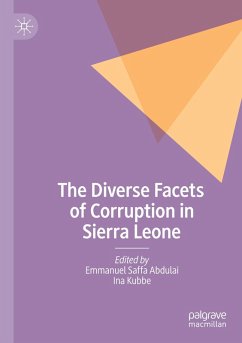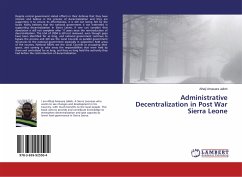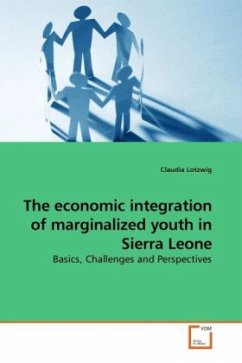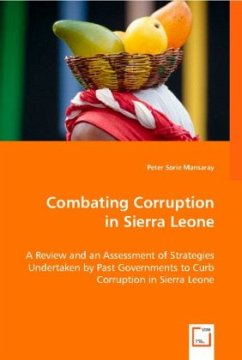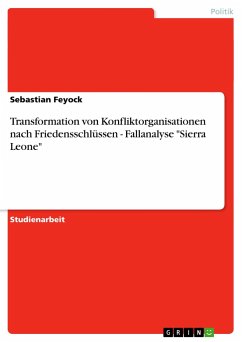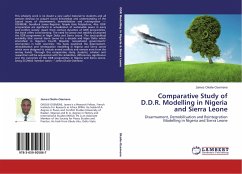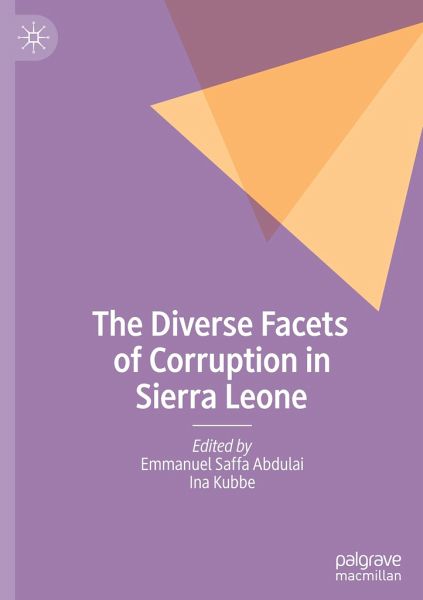
The Diverse Facets of Corruption in Sierra Leone

PAYBACK Punkte
49 °P sammeln!
This edited volume delves into Sierra Leone's complex post-conflict landscape. It posits that the nation's path to peace and stability hinges on robust anticorruption measures. The chapters explore Sierra Leoneans' unique perception of corruption, reflecting its political, economic, legal and socio-cultural dimensions. Moving away from mere theoretical abstraction, the book pulls together fascinating practical discussions on the success and challenges of anti-corruption tools used in Sierra Leone. Approaches used to explain corruption in this postwar fragile democratic country include issues l...
This edited volume delves into Sierra Leone's complex post-conflict landscape. It posits that the nation's path to peace and stability hinges on robust anticorruption measures. The chapters explore Sierra Leoneans' unique perception of corruption, reflecting its political, economic, legal and socio-cultural dimensions. Moving away from mere theoretical abstraction, the book pulls together fascinating practical discussions on the success and challenges of anti-corruption tools used in Sierra Leone. Approaches used to explain corruption in this postwar fragile democratic country include issues like non-conviction-based asset recovery and how it works; unexplained wealth exposes lifestyle offences, accountability of the judiciary and how judicial institutions can become a predator; the role of the media in the fight against corruption; the part of culture and history in engraining corruption; patrimonialism as an explanation of corruption; ad social norms and sociological exposition to explain corruption.



